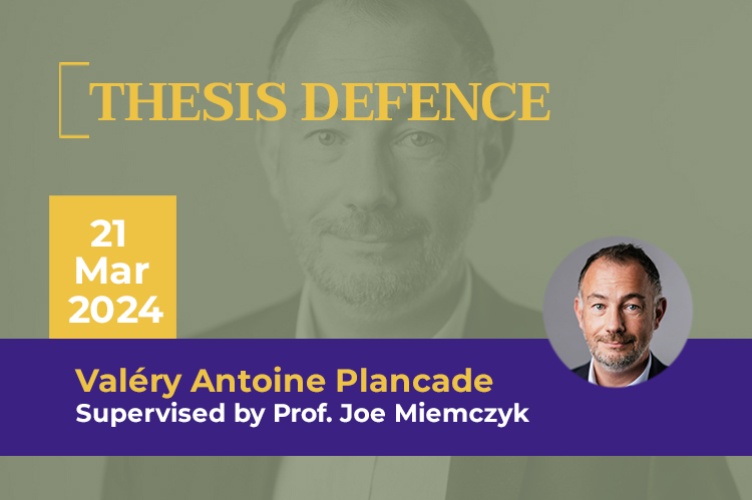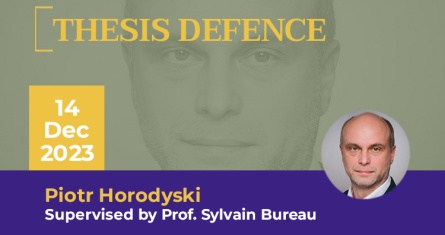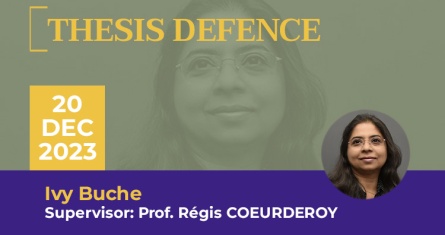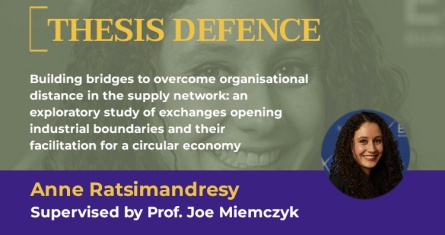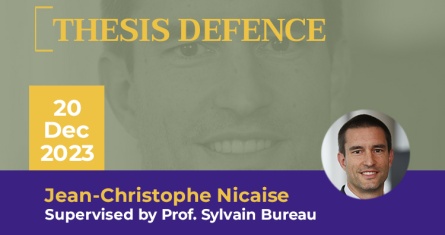Thesis Defence
How Hybrid Organizations leverage on Circular Business Models to develop their environmental impact

Valéry Antoine Plancade, PhD candidate in the Global Executive Ph.D., will publicly defend his thesis in Management Sciences.
21 March 2024
10 a.m. - 12 p.m. (CET - GMT+1)
ESCP Business School Paris Campus / Montparnasse - Amphitheater M1030
Abstract
In recent years, pushed by the necessity to fight against climate change and to integrate social responsibility in their activity, businesses are claimed to move from “the business of business is business” approach to the need to look for a “social licence to operate”.
There are numerous approaches to this shift towards positive societal impact, for example adopting Circular Business Models (CBM), or rebalancing business priorities through hybrid organizational forms by pursuing a mission which goes beyond profit maximization. Few scholars have recently started to combine both approaches, but the domain remains still unexplored. Therefore, this thesis develops answers to the question: How do Hybrid Organizations leverage on Circular Business Models to develop their environmental impact?
This PhD dissertation proposes a mixed-method research based on a first conceptual paper organized around a literature review to define the main constructs, CE, CBM and Hybrid Organizations, and to explore their relationships. The second paper uses qualitative techniques as they are well suited to induction because of the rich detail they can provide. The third paper takes the novel results from the previous study and test them with quantitative research.
The first paper highlights seven propositions around value proposition, architecture of value, and revenue model where Hybrid Organizations have specific challenges to overcome concerning CE. The second article distinguishes similarities and differences in the way Hybrid and classical for-profit organizations apprehend CE. The third article demonstrates that the choice of a CBM is relevant for Hybrid Organizations to get a strong environmental impact. But this choice does not prevent to deal with tensions around social impact and does not ensure to perform economically better than with a non-CBM.
Jury
Supervisor:
- Prof. Joe Miemczyk
Professor, ESCP Business School
Referees & Suffragants:
- Prof. Sylvain Bureau,
Professor of Entrepreneurship, ESCP Business School - Prof. Rhona Johnsen,
Professor of Industrial Marketing & Supply Relationships, Audencia Business School - Prof. Maja Tampe,
Associate Professor of Society, Politics and Sustainability, ESADE Business School
Location
Organiser: France (or online)
Paris - France (or online)
MapDate
Start date: 21/03/2024
Start time: 10:00 AM
End time: 12:00 PM
